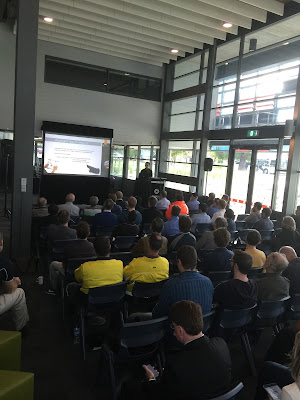With already impressive attendance in both Melbourne and Sydney, the Perth event played to an audience of 64 people from 52 companies.
Hosted by the Central Institute of Technology (CIT) at their GreenSkills Training Centre, guests at the Direct Digital Manufacturing (DDM) seminar were treated to a wealth of information from professionals across all facets of the Additive Manufacturing industry.
The focus of this series of Objective3D Seminars was how 3D Printers can augment and accelerate traditional manufacturing processes and production. Topics covered included an overview of the Stratasys 3D Printing Technologies in FDM and Polyjet by Objective3D local representative - Ben Gentry, 3D printing technology in DDM, a customer presentation from Mark Robinson from CIT featuring the application of the technology at CIT, leasing arrangements by David Roberts from Alleasing, as well as the capabilities and unique services offered by Objective3D parts, our 3D Printing division.
Next stop in the Objective3D seminar series - Adelaide on 28th July. Stay tuned for more details
DATES FOR THE DIARY:
More seminars are planned throughout the year:
July 2015 - Adelaide
Aug 2015 - Melbourne
Sept 2015 - Sydney
